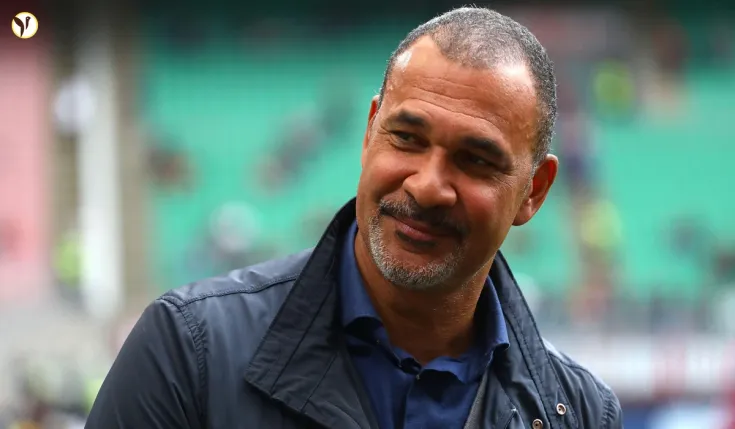Ruud Gullit: From Footballing Icon to Managerial Reflections
Ruud Gullit, a name synonymous with Dutch footballing prowess and a legendary career at AC Milan and Chelsea, recently opened up about his unexpected journey into management, his tumultuous time at Stamford Bridge and Newcastle United, and his surprising perspective on some key moments in his managerial career. His candid reflections offer a fascinating insight into the pressures and realities faced by managers in the high-stakes world of professional football.
Gullit's Unintended Managerial Career
In a recent podcast appearance, Gullit revealed that management wasn't a career path he actively sought. Instead, he was, in his words, "dragged into it." Following Glenn Hoddle's departure from Chelsea to manage the England national team, the Chelsea players and fans pleaded with Gullit to take the reins. Initially hesitant, Gullit eventually accepted the player-manager role, a decision he now admits marked the end of his playing career. This highlights the complex interplay between player loyalty, fan pressure, and the unforeseen twists and turns of a footballing career.
- The Chelsea Years: Gullit's tenure at Chelsea began with success, culminating in the club’s first major trophy in 26 years – the FA Cup. However, his time ended abruptly with a shock dismissal despite leaving the club second in the league. He attributes this to internal betrayal and disagreements over transfers.
- The Newcastle United Experience: Gullit’s time at Newcastle was far less successful. His stint was short-lived, marked by controversy, notably the 1999 FA Cup Final loss to Manchester United and a derby defeat to Sunderland which, he says, was the final straw. He revealed feeling powerless to change the negative environment at the club, which ultimately resulted in relegation.
Gullit’s reflections on his Newcastle tenure also include the surprising claim that Newcastle actually played well in that 1999 FA Cup Final against Manchester United, a view disputed by Gary Neville, who played in that game. Gullit’s reasoning centered on the limited number of goalscorers within the Newcastle squad. This anecdote perfectly illustrates the complexities of managerial decisions and post-match analysis. Even decades later, different perspectives on the same events highlight the passionate debates that surround football.
A Manager's Perspective: Control and the Inevitability of Sacking
One of Gullit’s most striking observations revolves around the lack of control managers possess. He emphasized the behind-the-scenes machinations and events beyond a manager's influence, ultimately leading to their dismissals. This is a recurring theme in Gullit's reflections, highlighting the precarious nature of a manager's position, regardless of success on the pitch. The certainty of eventual dismissal, he confessed, is a burden every manager carries.
- The contrast with Newcastle's recent success: Gullit contrasted his own experiences at Newcastle with the club's recent Carabao Cup victory under Eddie Howe, expressing his happiness for the club's resurgence. This serves as a powerful illustration of the dramatic shifts in fortune within the football world, and the varying levels of managerial influence.
- A future Ballon d'Or contender? In a recent interview, Gullit highlighted young PSG player Desire Doue as a potential future Ballon d'Or winner, showcasing his continued engagement with and keen observation of the modern game.
Conclusion: A Legacy Beyond the Touchline
Ruud Gullit's managerial career, while marked by highs and lows, offers valuable insights into the pressures and challenges faced by football managers. His candid reflections – on the unexpected nature of his managerial journey, the limitations of control, and the inevitable threat of dismissal – provide a humanizing perspective often absent from the spotlight. His legacy extends far beyond his time on the touchline; his words serve as a reminder of the complexities and pressures of a profession often lauded but rarely understood fully.






